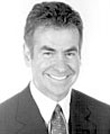|
Fraser Seitel |
A few years ago, the hottest book about public relations was called, The Death of Advertising and the Rise of PR, which predicted that paid media was no match for earned media in the age of social media.
As it happened, while earned media through the third party endorsement of others is, indeed, more valuable these days, advertising is by no means dead. In fact, it’s thriving through all sorts of new channels.
But if a certain presidential candidate continues to shine, PR as we have come to know it may be headed for the scrap heap, particularly the traditional media relations counsel for which public relations professionals are known.
Just consider the way candidate Trump handled the media at his last press conference regarding contributing to veterans’ groups and how his answers differed from the way he would have been counseled by folks like us.
Q: “How personally involved were you in deciding which military organizations were to be recipients of your gifts?”
PR Advice: Indicate that you were intimately involved with the decisions, because all of us have so much to be thankful for regarding our fighting men and women; most of us pale in comparison to these selfless heroes.
Trump: “I wasn’t too involved in picking the organizations other than I gave a million dollars to the marine law enforcement; marines, they are fabulous people. They honored me last year.”
Q: “But you waited so long to follow through on your contribution promise. Don’t you believe you should be accountable to the people?”
PR Advice: Suggest that, of course you’re “accountable” for your words and explain, without rancor toward the media, that these donations took some time to raise, but that’s what now has been done, which is most important.
Trump: “I’m totally accountable, but I didn’t want to have credit for it. We have given to groups that are unbelievable groups, and honestly, I wish you could hear the phone calls and see the letters, they are so happy. And I’m happy to do it. I didn’t want the credit for it, but it was very unfair that the press treated us so badly.”
Q: “But shouldn’t a Presidential candidate expect scrutiny from the press?”
PR Advice: Agree with the premise and point out how available you’ve been. But reiterate that all you are asking for is “fairness” in coverage. Be magnanimous, understanding the media have a job to do. Be careful not to antagonize them.
Trump: “I don’t mind scrutiny. What I don’t like is lies. You can scrutinize me all day long but you set up false premises. You state things about me that are not true. Then you run stories on that. That’s why I’m out here trying to correct the record.”
Q: “Have you examples of what you call ‘unfairness?’”
PR Advice: Careful. Don’t get sucked into a name-calling spat with the press. Keep your examples generic as to their benign treatment of Hillary versus the way you’re always challenged. Just keep it general.
Trump: “I’m not looking for credit. But what I don’t want is when I raise millions of dollars, to have people say — like this sleazy guy right over here from ABC. He’s a sleaze in my book.”
Q: “So you think the press is out to get you?”
PR Advice: No. No. No. No. No. You can’t win this one. Again, acknowledge they’re doing their job and appeal for fair treatment. Then drop it. Move on. And for God’s sake, don’t point fingers at anybody else. It’s a lose/lose.
Trump: “Excuse me. I’ve watched you on television. You’re a real beauty. When I raise money for the veterans, and it’s a massive amount of money, find out how much Hillary Clinton’s given to the veterans.”
Q: “Are you even going to be critical about Republicans if they don’t support you?”
PR Advice: They’ll come around; they’ll come around. Don’t take the bait. Express optimism about the “big tent.” At least, this will move away from the subject of you and the press.
Trump: “If they attack me, yes. Somebody comes after me, maybe not as much if they’re Republican, but I’m still gonna go after ’em, of course I am. But the media, the media totally wants Hillary Clinton to win, but they’re so conflicted.”
Q: “What purpose does it serve to call Republicans and conservatives ‘losers?’”
PR Advice: None. So tell them that’s why you’re going to start to build up the party as it unifies behind you — one big happy family united against Hillary. And please, for the love of God, no more names!
Trump: “No, I didn’t say that. I said Bill Kristol is a loser. And I’ll tell you why. He has called every single move — take a look, on me. ‘He’s going to lose this state.’ I win in a landslide. I didn’t say everybody. Many, but I didn’t say everybody.”
Q: “If you’re President, will we be having this kind of confrontation in the pressroom at the White House?’”
PR Advice: No, please, no. Just repeat that as long as they treat you fairly, you will be square with them. Reiterate that you understand the role of the press in our democracy and that you wholeheartedly believe that most working reporters just want to get it right.
Trump: “Yeah, it is gonna be like this. If the press writes false stories, like they did with this, because, you know, half of you are amazed that I raised all of this money. If the press writes false stories like they did, then we have to read probably libelous stories, or certainly close, in the newspapers, and the people know the stories are false, I’m gonna continue to attack the press. Look, I find the press to be extremely dishonest. I find the political press to be unbelievably dishonest. I will say that.
And that, in bone-chilling, verbatim detail is why if candidate Trump becomes President Trump, the days of the trusted, public relations advisor may be numbered.
* * *
Fraser P. Seitel has been a communications consultant, author and teacher for 40 years. He may be reached directly at [email protected]. He is the author of the Prentice-Hall text The Practice of Public Relations, now in its 12th edition, and co-author of Rethinking Reputation and Idea Wise.



 Maggie Moran, who is well-connected in New Jersey and New York Democratic politics, has established Moxie Strategies in Asbury Park, NJ.
Maggie Moran, who is well-connected in New Jersey and New York Democratic politics, has established Moxie Strategies in Asbury Park, NJ. Husch Blackwell Strategies has added FleishmanHillard alum Michael Slatin as a principal in its public affairs group.
Husch Blackwell Strategies has added FleishmanHillard alum Michael Slatin as a principal in its public affairs group. Rory Cooper, a veteran Republican operative and policy specialist, has joined Teneo’s Washington office as senior managing director in its strategy & communications practice.
Rory Cooper, a veteran Republican operative and policy specialist, has joined Teneo’s Washington office as senior managing director in its strategy & communications practice. Brian Fallon, who served as national press secretary for Hillary Clinton’s 2016 presidential run, is signing on next month as Vice President’s Kamala Harris’ campaign communications director.
Brian Fallon, who served as national press secretary for Hillary Clinton’s 2016 presidential run, is signing on next month as Vice President’s Kamala Harris’ campaign communications director. TikTok is nothing more than a Chinese propaganda tool that poses “a grave threat to America’s national security and, in particular, impressionable children and young adults,” say two Congressmen who want the platform registered as a foreign agent.
TikTok is nothing more than a Chinese propaganda tool that poses “a grave threat to America’s national security and, in particular, impressionable children and young adults,” say two Congressmen who want the platform registered as a foreign agent.


 Have a comment? Send it to
Have a comment? Send it to 
No comments have been submitted for this story yet.